
Find Help
More Items From Ergsy search
-
Can I get the basic State Pension if I’m self-employed?
Relevance: 100%
-

Is there a difference between the basic State Pension and the new State Pension?
Relevance: 72%
-

How many National Insurance contributions do I need for the basic State Pension?
Relevance: 64%
-
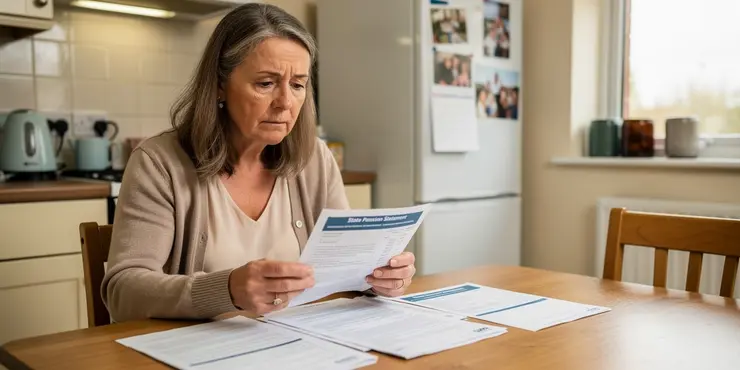
Will I qualify for the new state pension?
Relevance: 63%
-
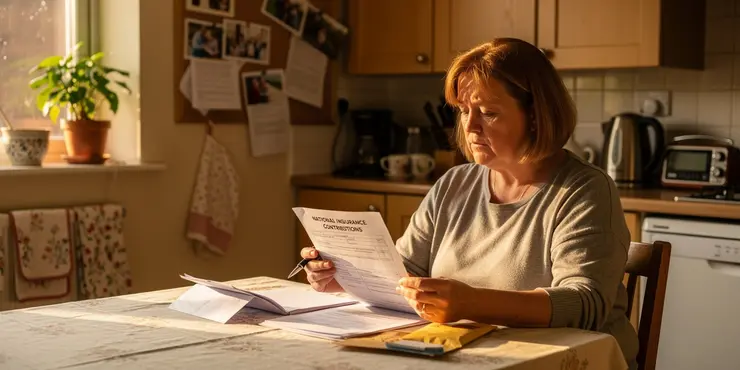
Who is eligible for the basic State Pension?
Relevance: 63%
-
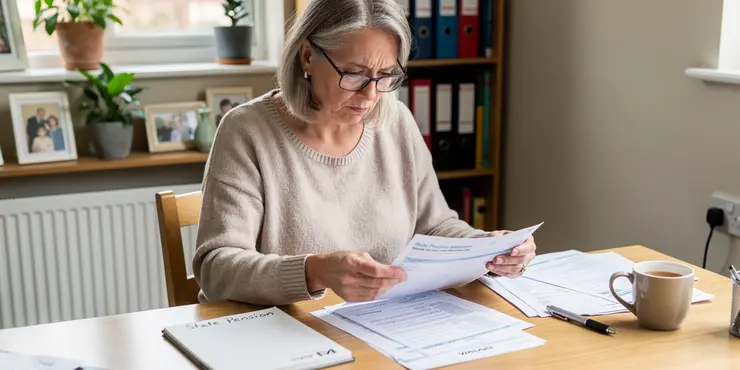
How do I claim the basic State Pension?
Relevance: 61%
-

What is the state pension age in the UK in 2026?
Relevance: 61%
-

Do I pay tax on the basic State Pension?
Relevance: 61%
-
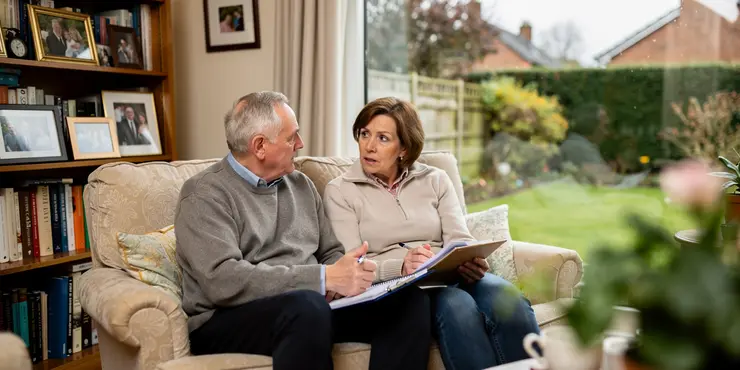
Can I defer my basic State Pension?
Relevance: 61%
-

Is the basic State Pension enough to live on?
Relevance: 60%
-

Can my spouse inherit my basic State Pension?
Relevance: 59%
-
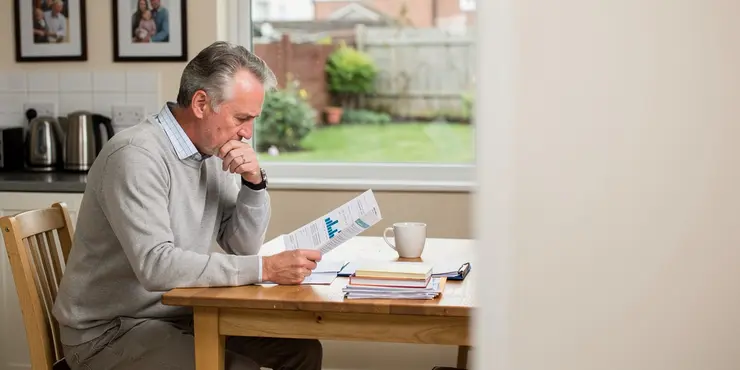
Will the state pension amount change with the age increase?
Relevance: 59%
-

When will the state pension age increase to 67?
Relevance: 59%
-

Are there any changes to the state pension age in 2026?
Relevance: 59%
-

What are the state pension age changes in 2026 in the UK?
Relevance: 58%
-
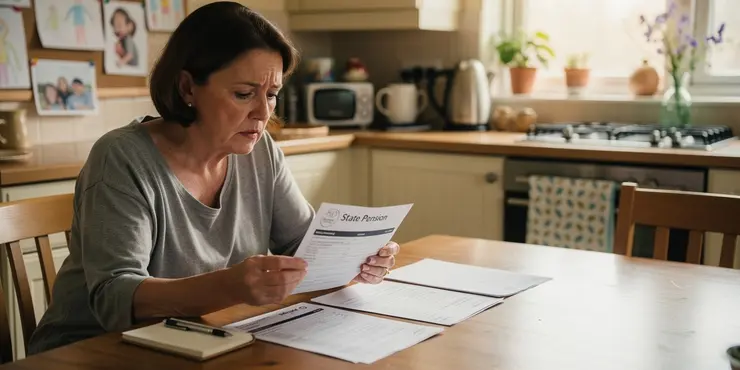
State Pension UK | How much will I get? | WILL IT LAST FOREVER?!?
Relevance: 57%
-
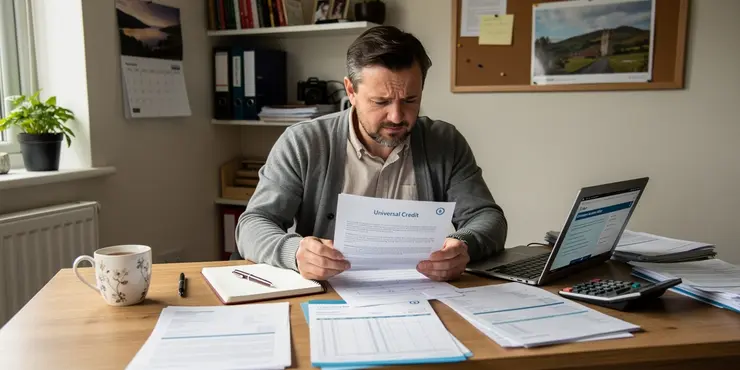
Can I apply for Universal Credit if I am self-employed?
Relevance: 57%
-
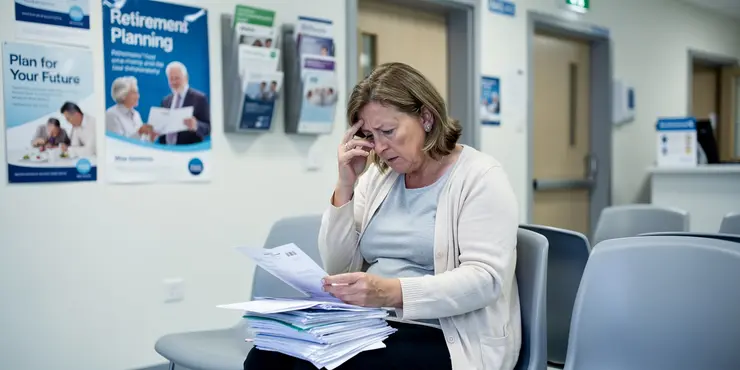
Who will be affected by the state pension age changes in 2026?
Relevance: 56%
-
Are there credits available for the basic State Pension if I can't work?
Relevance: 56%
-
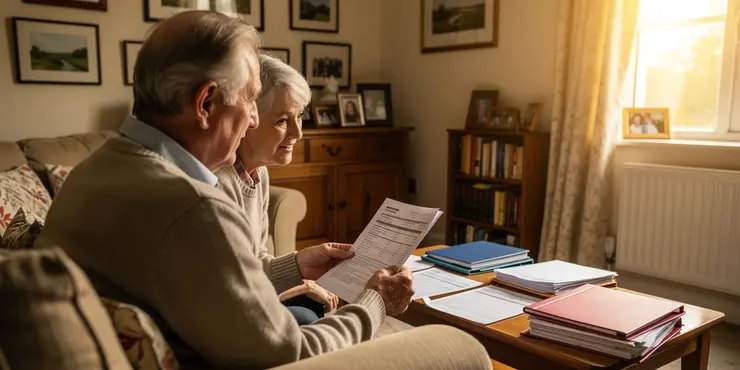
How much is the full basic State Pension per week?
Relevance: 55%
-
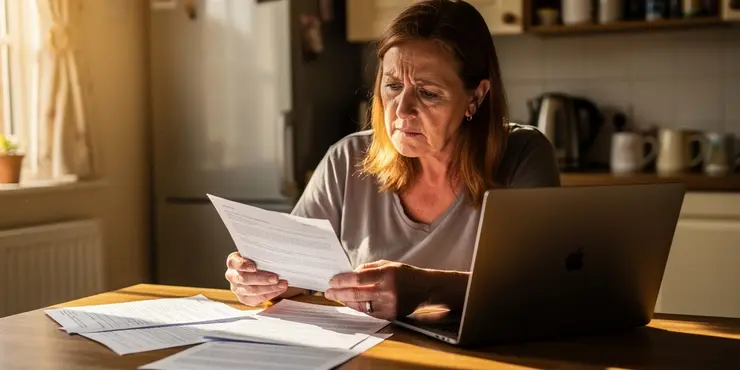
How can I find out my specific state pension age?
Relevance: 55%
-

What is the new planned state pension age after 2028?
Relevance: 55%
-

How often does the UK government review the state pension age?
Relevance: 55%
-
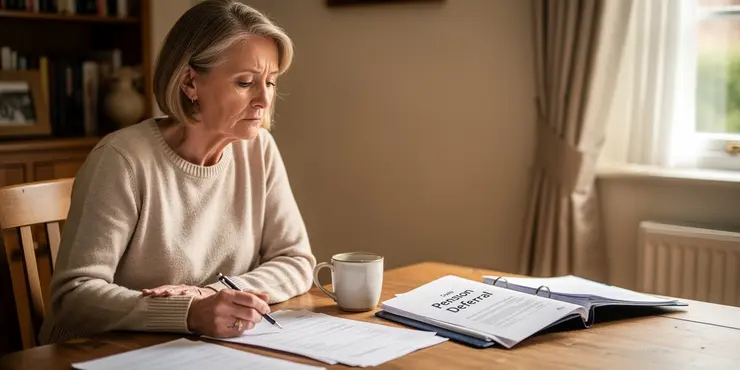
How much extra will I get if I defer my basic State Pension?
Relevance: 55%
-

What demographic factors influence changes to the state pension age?
Relevance: 54%
-
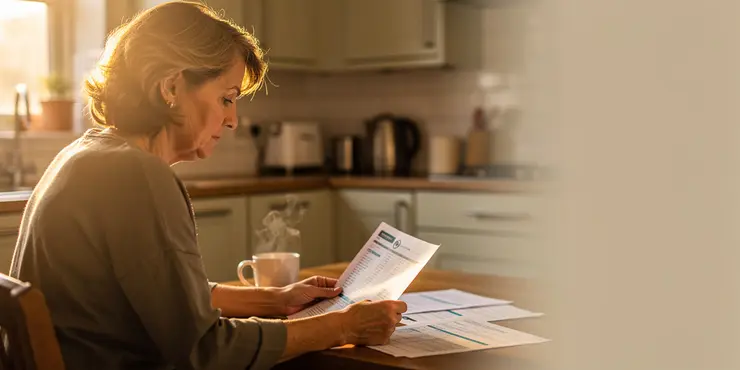
What age group will first see the state pension age at 67?
Relevance: 54%
-
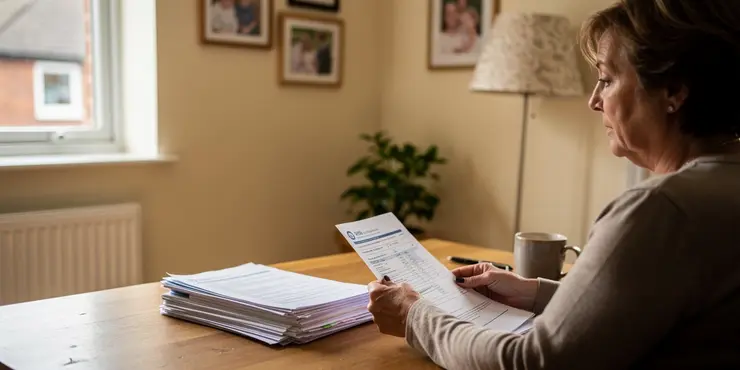
What is the basic pension in the UK?
Relevance: 52%
-

Can I receive the basic State Pension if I have less than 30 qualifying years?
Relevance: 50%
-

Can I apply if I am self-employed?
Relevance: 49%
-

Is there any assistance for those who cannot work up to the new state pension age?
Relevance: 49%
-
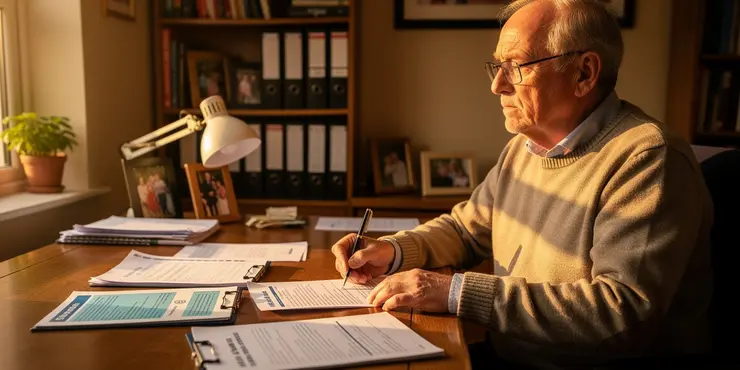
Will I lose my basic State Pension if I start working after reaching State Pension age?
Relevance: 46%
-
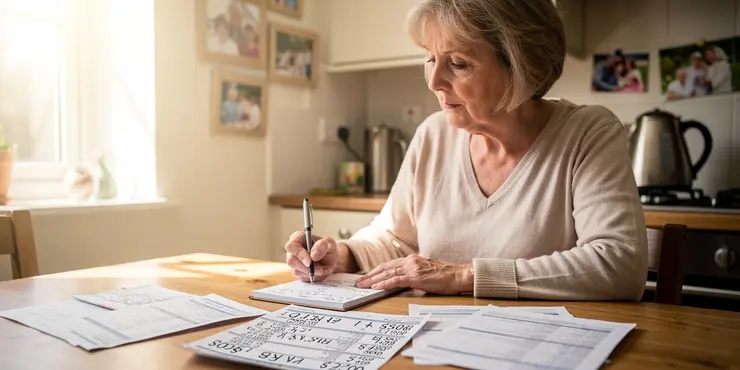
How is the basic State Pension calculated?
Relevance: 45%
-
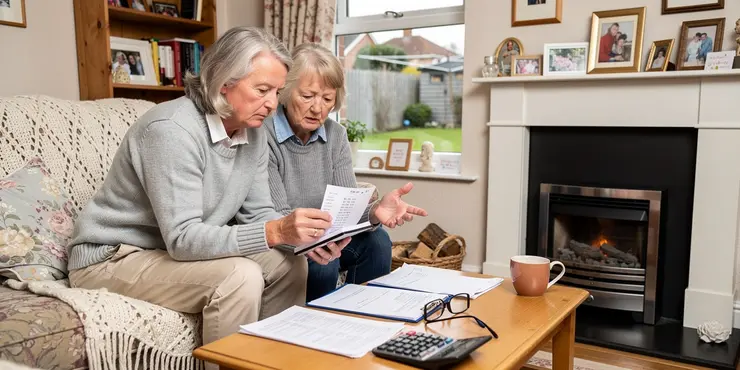
When is the basic State Pension paid?
Relevance: 44%
-

Can I file my taxes online if I'm self-employed?
Relevance: 44%
-

What if I'm self-employed and my income varies?
Relevance: 43%
-

Are men and women's pension ages equalized?
Relevance: 43%
-

DWP State Pension Age Changes 2026
Relevance: 43%
-
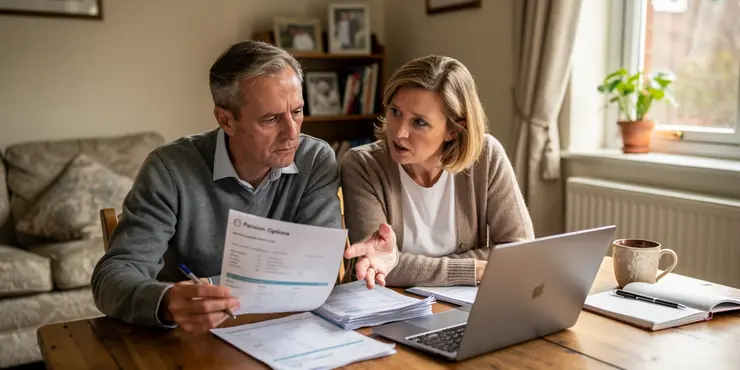
Can I get the basic State Pension if I live abroad?
Relevance: 41%
-
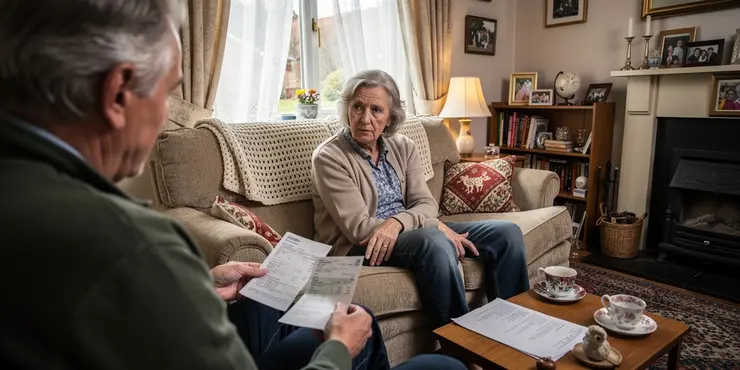
Unfreezing the Truth The UK's Frozen Pensions
Relevance: 40%
-

What is the impact on pensioners if a pension system collapses?
Relevance: 40%
Understanding the Basic State Pension
The Basic State Pension is a regular payment provided by the UK government to individuals who have reached the State Pension age. It forms the backbone of retirement income for many citizens. The amount you receive depends on your National Insurance contributions over your working life, ensuring you have contributed sufficiently to qualify for this pension benefit.
Eligibility for Self-Employed Individuals
If you are self-employed, you are still eligible to receive the Basic State Pension, provided you have made the required National Insurance contributions. Unlike employed individuals who pay Class 1 National Insurance contributions, self-employed persons pay Class 2 and possibly Class 4 contributions. It's essential to ensure you have met the necessary number of qualifying years of contributions to receive the full pension amount.
National Insurance Contributions
The self-employed need to pay Class 2 National Insurance contributions if their profits are above the Small Profits Threshold. As of the most recent guidelines, if your profits are below this threshold, you may not automatically be contributing to your National Insurance record. However, you can choose to pay voluntary contributions to fill any gaps and ensure you qualify for the full Basic State Pension.
Qualifying Years for the Basic State Pension
To qualify for the full Basic State Pension, you need a certain number of qualifying years, which refers to years in which you have made sufficient National Insurance contributions. For those who reached State Pension age before 6 April 2016, a full 30 qualifying years are required. People who reach State Pension age after this date may receive the New State Pension, which has different eligibility criteria.
Checking Your State Pension Forecast
It's advisable for all individuals, especially those who are self-employed, to check their State Pension forecast. This can be done online through the UK government’s website. The forecast will show you how much pension you can expect to receive and whether there are any gaps in your National Insurance record that you might need to fill. This proactive approach ensures there are no surprises when you reach pension age.
Voluntary Contributions and Filling Gaps
If you find that there are gaps in your National Insurance record, it may be worthwhile to pay voluntary contributions to secure your pension at retirement. This is particularly relevant for self-employed individuals with fluctuating incomes or those who had periods without contributions, such as during career breaks or low-earning years. By addressing these gaps, you can maximize your Basic State Pension entitlement.
Final Thoughts
In conclusion, self-employed individuals can certainly receive the Basic State Pension, provided they have adequately contributed to their National Insurance record. Understanding the contribution requirements and periodically reviewing your State Pension forecast can ensure you make informed decisions about your retirement and prevent potential shortfalls in your pension income.
Understanding the Basic State Pension
The Basic State Pension is money the UK government gives to people who are old enough. It helps them have money when they stop working. How much you get depends on how much you have paid in National Insurance while working. You need to pay enough to get this pension.
Eligibility for Self-Employed Individuals
If you work for yourself (self-employed), you can still get the Basic State Pension. You must pay the right amount of National Insurance. People who work for a company pay Class 1, but self-employed people pay Class 2 or sometimes Class 4. It's important to have enough years of paying this to get the full amount.
National Insurance Contributions
If you are self-employed and earn more than a certain amount, you pay Class 2 National Insurance. If you earn less, you might not pay automatically. But you can choose to pay anyway to make sure you get the full Basic State Pension.
Qualifying Years for the Basic State Pension
You need enough years of paying National Insurance to get the full pension. If you were old enough for a pension before 6 April 2016, you needed 30 years of payments. If you become old enough after this date, you might get the New State Pension, which has different rules.
Checking Your State Pension Forecast
You should check how much pension you will get, especially if you are self-employed. You can do this online on the UK government’s website. This tells you how much money you might get and if there are any gaps you need to fill in your National Insurance record. This helps you plan better for when you stop working.
Voluntary Contributions and Filling Gaps
If there are gaps in your National Insurance record, you can pay extra to fill them. This is important if your earnings change or you didn’t work for some time. Filling these gaps can help you get the full Basic State Pension.
Final Thoughts
If you work for yourself, you can still get the Basic State Pension if you pay the right amount into National Insurance. Understanding how much to pay and checking your pension details helps you plan for the future and make sure you have enough money when you retire.
Frequently Asked Questions
Can I get the basic State Pension if I'm self-employed?
Yes, self-employed individuals can qualify for the basic State Pension by paying National Insurance contributions.
What type of National Insurance contributions do I need to pay as a self-employed person for State Pension?
Self-employed individuals typically pay Class 2 and Class 4 National Insurance contributions.
How many years of National Insurance contributions do I need to qualify for the basic State Pension?
You need at least 10 qualifying years to get any State Pension and 35 qualifying years to get the full basic State Pension.
Does paying Class 2 National Insurance contributions count towards my State Pension?
Yes, paying Class 2 National Insurance contributions counts towards your qualifying years for State Pension.
What is the full basic State Pension amount?
The full basic State Pension is currently £156.20 per week.
Can I apply for the State Pension online?
Yes, you can apply for the State Pension online through the UK government's website.
What happens if I have gaps in my National Insurance record?
If you have gaps in your record, you may be able to make voluntary contributions to fill these gaps.
How can I check my National Insurance record?
You can check your National Insurance record online through your personal tax account on the UK government's website.
What is the difference between Class 2 and Class 4 National Insurance contributions?
Class 2 contributions are flat rate and count towards benefits such as the State Pension, whereas Class 4 contributions are based on profits and do not count towards benefits.
Do voluntary National Insurance contributions count towards the State Pension?
Yes, voluntary contributions can help fill gaps in your record and count towards your State Pension.
When will I receive the State Pension?
You can claim the State Pension once you reach State Pension age, which varies depending on your birth date.
How do I know how much State Pension I will receive?
You can get a State Pension forecast online to see how much you might get and when.
What happens if I haven’t paid enough National Insurance contributions?
You may receive a lower State Pension, or possibly none if you have fewer than 10 qualifying years, unless you top up with voluntary contributions.
Can I delay claiming my State Pension?
Yes, you can defer claiming your State Pension, which may increase the amount you receive when you do claim it.
Are self-employed people eligible for the new State Pension?
Yes, self-employed people are eligible for the new State Pension if they meet the necessary National Insurance contributions.
Are there any other benefits for self-employed people in terms of State Pension?
Self-employed individuals who pay National Insurance can build up to the full new State Pension in the same way as employed individuals.
Is the State Pension taxable income?
Yes, the State Pension is taxable income but paid without any tax deducted.
How does being self-employed affect my State Pension age?
Being self-employed does not affect your State Pension age; it is determined by your date of birth and gender.
Can I receive my State Pension while still working?
Yes, you can receive your State Pension and continue working, but your income may affect how much tax you pay.
What support is available for self-employed people with regards to pensions?
The government provides guidance on State Pension entitlements, and self-employed individuals can also consider private pensions for additional support.
Can I get the basic State Pension if I work for myself?
Yes, you can get the basic State Pension if you work for yourself. You must pay National Insurance.
Here is how to get the State Pension:
- Pay National Insurance while working.
- Check your National Insurance record.
- Use a calculator to see how much you will get.
- Ask for help if you are unsure.
You can ask someone you trust or find more information online. You can use websites that help with money questions.
Yes, if you work for yourself, you can get the basic State Pension. You need to pay National Insurance to qualify.
What types of National Insurance do I pay when I work for myself to get State Pension?
If you work for yourself (self-employed), you still need to pay National Insurance.
There are two types you might pay:
- Class 2: You usually pay this if you make a certain amount of money each year.
- Class 4: You pay this if you make more money. It depends on how much you earn.
You pay these so you can get a State Pension when you are older.
If you find it hard to understand, you can:
- Ask someone to help you.
- Use an online tool that explains National Insurance.
These tools can make it easier to know what to do.
People who work for themselves usually pay two types of National Insurance. These are called Class 2 and Class 4.
How long do I need to pay National Insurance to get the State Pension?
You need to pay National Insurance for at least 10 years to get any State Pension.
If you pay for 35 years, you can get the full State Pension.
You can use a special calculator online to help find out how much pension you will get. Ask someone to help you use it if you need.
You need to pay in for at least 10 years to get some State Pension money. If you pay in for 35 years, you can get all of the State Pension money.
Does paying Class 2 National Insurance help with my State Pension?
When you pay Class 2 National Insurance, it helps you get your State Pension.
If you are self-employed, you might pay Class 2 National Insurance.
You can use tools like talking to a helper or using a calculator to see what you need for your pension.
Yes, paying Class 2 National Insurance helps you get more years for your State Pension.
How much money do you get from the State Pension?
The full State Pension right now is £156.20 each week.
Can I ask for the State Pension on the Internet?
Yes, you can ask for your State Pension online. This means using a computer, tablet, or phone to do it. If you need help, ask someone you trust. You can also use tools like text readers to make it easier.
Yes, you can ask for State Pension online using the UK government website.
What if I have missing payments in my National Insurance?
Your National Insurance helps you get things like a pension when you are older. If you don't pay enough, you might not get all the help.
Here are some things that can help you:
- Check your record: See if there are any missing payments. You can ask for help checking.
- Pay later: Sometimes you can pay money you missed before. This can help fix your record.
- Ask for help: Talk to someone who knows about National Insurance. They can help you understand and fix any problems.
Remember, it's okay to ask questions if you don't understand. People are there to help you.
If there are missing parts in your record, you might be able to pay money to fill in these missing parts.
How can I see my National Insurance record?
Want to see your National Insurance record? Here is how you can do it:
- Go to the government website on a computer, phone, or tablet.
- Look for "Check my National Insurance record."
- You might need your National Insurance number. It's a special number just for you, like a secret code.
- Follow the steps on the website. It will show you what to do.
If you find these steps tricky, ask a friend, family member, or carer to help you.
You can also use a screen reader or other helpful tools if that's easier for you.
You can look at your National Insurance record on the internet. Use your personal tax account on the UK government's website.
How are Class 2 and Class 4 National Insurance different?
Class 2 and Class 4 National Insurance are two types of payments you make to the government if you earn money by working for yourself.
Class 2 National Insurance
You pay Class 2 if you earn a small amount of money each year from your work.
Class 4 National Insurance
You pay Class 4 if you earn more money. It's like a bigger payment if you make more than a certain amount.
If you're not sure which one you need to pay, you can ask for help or use online tools to find out.
Class 2 payments have a set cost. They help you get things like the State Pension. Class 4 payments depend on how much money you earn. They do not help you get benefits.
Do extra National Insurance payments help with the State Pension?
If you pay extra National Insurance, will it make your State Pension bigger? Let's find out!
Paying more can sometimes help. To know for sure, you can:
- Ask someone you trust to go over it with you.
- Use a calculator online made for pensions.
- Talk to someone who is an expert.
This way, you can learn how paying extra helps with your pension.
Yes, you can make payments to help your record. This can help with your State Pension.
When will I get the State Pension?
You can get your State Pension when you reach a certain age. This age is different for everyone, depending on when you were born.
How can I find out how much State Pension I'll get?
You can find out how much State Pension money you will get when you retire.
Here's how:
- Go to the government website to check your State Pension.
- You might need to create an account or log in.
- You can also ask for a paper statement by calling them.
- If you need help, ask a family member or a trusted friend to help you.
Remember:
- The more years you work, the more pension you might get.
- You need a certain number of years to get the full amount.
Tools can help:
- Use the website's help section if you get stuck.
- Look for videos online that explain how to check your pension.
You can check online to see how much money you will get from the State Pension and when you will get it.
What if I did not pay enough National Insurance?
Don't worry, here's what you can do:
- Check if you need to pay more. You can contact a service for help.
- You might get less money when you stop working. You can still fix this by paying more.
- Use online tools or ask someone to help you understand what to do next.
If you don't have 10 years of payments, you might get less money when you retire, or even none at all. You can pay extra to get more money later.
Can I wait to get my State Pension?
Yes, you can choose to wait before you start getting your State Pension.
If you wait, you might get more money when you start to claim it.
Ask someone you trust or use a tool online to help you decide.
Yes, you can wait to get your State Pension. If you wait, the money you get later might be more.
Can self-employed people get the new State Pension?
Yes, if you work for yourself, you can get the new State Pension. You just need to make sure you pay into National Insurance enough.
Do self-employed people get extra help with State Pension?
People who work for themselves and pay National Insurance can still get the full new State Pension just like people who work for a company.
Do you have to pay tax on your State Pension?
Your State Pension is money you get from the government when you are older. But, do you have to give some of this money back as tax?
Here are some tips to help you:
- Ask someone you trust about taxes.
- You can use a calculator tool online to see if you will pay tax.
- A tax advisor can help explain more if you find it confusing.
The State Pension is money you get when you are older.
You have to pay tax on it.
The tax is not taken from your pension before you get it.
If you need help, ask a family member or use a calculator to work out your tax.
How does working for myself change when I can get my State Pension?
If you work for yourself, it won't change the age when you can get your State Pension. Your State Pension age depends on your birthday and whether you are a man or a woman.
Can I get my State Pension while I am still working?
Yes, you can get your State Pension and still work. But, the money you earn might change how much tax you pay.
Help for Self-Employed People with Saving Money for the Future
If you work for yourself, like a small business owner, you might wonder how to save money for when you are older. This is called a pension.
There are ways you can save for the future:
- Open your own personal pension plan.
- Put aside money regularly, even a small amount helps.
- Talk to a money expert for advice. They can help you make a plan.
It can also help to use things like:
- Easy-to-use apps to keep track of your savings.
- Websites with simple guides on pensions.
- Videos that explain pensions in simple words.
Remember, it's never too early or too late to start saving!
The government has rules about State Pensions. People who work for themselves can also save money in private pensions to get extra help when they stop working.
Useful Links
This website offers general information and is not a substitute for professional advice.
Always seek guidance from qualified professionals.
If you have any medical concerns or need urgent help, contact a healthcare professional or emergency services immediately.
Some of this content was generated with AI assistance. We’ve done our best to keep it accurate, helpful, and human-friendly.
- Ergsy carfully checks the information in the videos we provide here.
- Videos shown by Youtube after a video has completed, have NOT been reviewed by ERGSY.
- To view, click the arrow in centre of video.
- Most of the videos you find here will have subtitles and/or closed captions available.
- You may need to turn these on, and choose your preferred language.
- Go to the video you'd like to watch.
- If closed captions (CC) are available, settings will be visible on the bottom right of the video player.
- To turn on Captions, click settings .
- To turn off Captions, click settings again.
More Items From Ergsy search
-
Can I get the basic State Pension if I’m self-employed?
Relevance: 100%
-

Is there a difference between the basic State Pension and the new State Pension?
Relevance: 72%
-

How many National Insurance contributions do I need for the basic State Pension?
Relevance: 64%
-

Will I qualify for the new state pension?
Relevance: 63%
-

Who is eligible for the basic State Pension?
Relevance: 63%
-

How do I claim the basic State Pension?
Relevance: 61%
-

What is the state pension age in the UK in 2026?
Relevance: 61%
-

Do I pay tax on the basic State Pension?
Relevance: 61%
-

Can I defer my basic State Pension?
Relevance: 61%
-

Is the basic State Pension enough to live on?
Relevance: 60%
-

Can my spouse inherit my basic State Pension?
Relevance: 59%
-

Will the state pension amount change with the age increase?
Relevance: 59%
-

When will the state pension age increase to 67?
Relevance: 59%
-

Are there any changes to the state pension age in 2026?
Relevance: 59%
-

What are the state pension age changes in 2026 in the UK?
Relevance: 58%
-

State Pension UK | How much will I get? | WILL IT LAST FOREVER?!?
Relevance: 57%
-

Can I apply for Universal Credit if I am self-employed?
Relevance: 57%
-

Who will be affected by the state pension age changes in 2026?
Relevance: 56%
-
Are there credits available for the basic State Pension if I can't work?
Relevance: 56%
-

How much is the full basic State Pension per week?
Relevance: 55%
-

How can I find out my specific state pension age?
Relevance: 55%
-

What is the new planned state pension age after 2028?
Relevance: 55%
-

How often does the UK government review the state pension age?
Relevance: 55%
-

How much extra will I get if I defer my basic State Pension?
Relevance: 55%
-

What demographic factors influence changes to the state pension age?
Relevance: 54%
-

What age group will first see the state pension age at 67?
Relevance: 54%
-

What is the basic pension in the UK?
Relevance: 52%
-

Can I receive the basic State Pension if I have less than 30 qualifying years?
Relevance: 50%
-

Can I apply if I am self-employed?
Relevance: 49%
-

Is there any assistance for those who cannot work up to the new state pension age?
Relevance: 49%
-

Will I lose my basic State Pension if I start working after reaching State Pension age?
Relevance: 46%
-

How is the basic State Pension calculated?
Relevance: 45%
-

When is the basic State Pension paid?
Relevance: 44%
-

Can I file my taxes online if I'm self-employed?
Relevance: 44%
-

What if I'm self-employed and my income varies?
Relevance: 43%
-

Are men and women's pension ages equalized?
Relevance: 43%
-

DWP State Pension Age Changes 2026
Relevance: 43%
-

Can I get the basic State Pension if I live abroad?
Relevance: 41%
-

Unfreezing the Truth The UK's Frozen Pensions
Relevance: 40%
-

What is the impact on pensioners if a pension system collapses?
Relevance: 40%


